In the ever-evolving landscape of transportation and logistics, understanding and optimizing lorry fuel tank capacity is paramount for enhancing operational efficiency, reducing costs, and ensuring sustainability. At CarMax Vehicle, we specialize in designing semi-trailers that not only meet but exceed industry standards, providing solutions tailored to the diverse needs of our clients.
Understanding Lorry Fuel Tank Capacity
Lorry fuel tank capacity refers to the total volume of fuel that a lorry’s tank can hold, typically measured in liters or gallons. This capacity plays a critical role in determining the vehicle’s range, performance, and overall efficiency. A well-optimized fuel tank ensures that lorries can cover longer distances without frequent refueling, thereby minimizing downtime and maximizing productivity.
Factors Influencing Fuel Tank Capacity
Several factors influence the determination of an optimal fuel tank capacity for lorries:
Vehicle Type and Size: The size and type of the lorry significantly impact the fuel tank capacity. Heavy-duty trucks designed for long-haul operations require larger fuel tanks compared to lighter vehicles used for local deliveries.
Engine Efficiency: The engine’s fuel efficiency directly affects how much fuel is consumed over a given distance. More efficient engines may allow for smaller fuel tanks without compromising the vehicle’s range.
Operational Requirements: The specific demands of the routes, including distance, terrain, and frequency of stops, dictate the necessary fuel capacity to ensure seamless operations.
Regulatory Standards: Compliance with regional and international regulations concerning fuel storage and transportation is crucial in determining fuel tank dimensions and capacities.
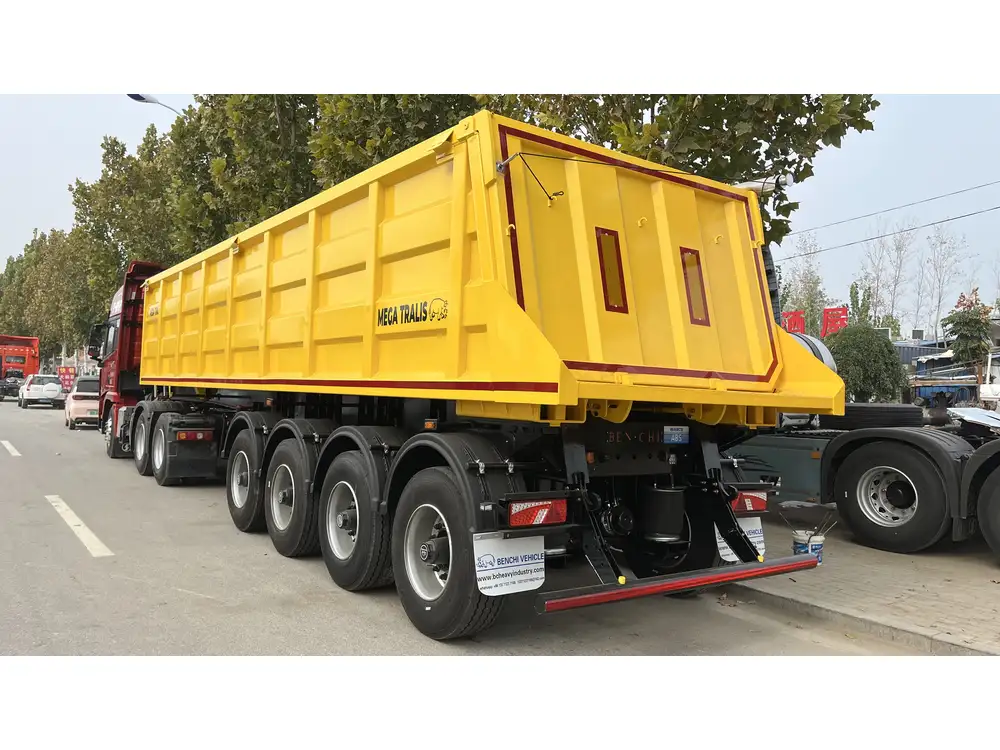
Benefits of Optimizing Fuel Tank Capacity
Optimizing fuel tank capacity offers a multitude of benefits that contribute to the overall success of transportation operations:
Enhanced Range and Reduced Refueling Stops
A larger fuel tank capacity allows lorries to traverse longer distances without the need for frequent refueling. This reduction in stops not only saves time but also decreases the wear and tear on the vehicle, leading to lower maintenance costs over time.
Cost Efficiency
By minimizing the number of refueling stops, companies can significantly reduce fuel costs. Additionally, bulk purchasing of fuel becomes more feasible with larger tank capacities, leading to potential discounts and further cost savings.
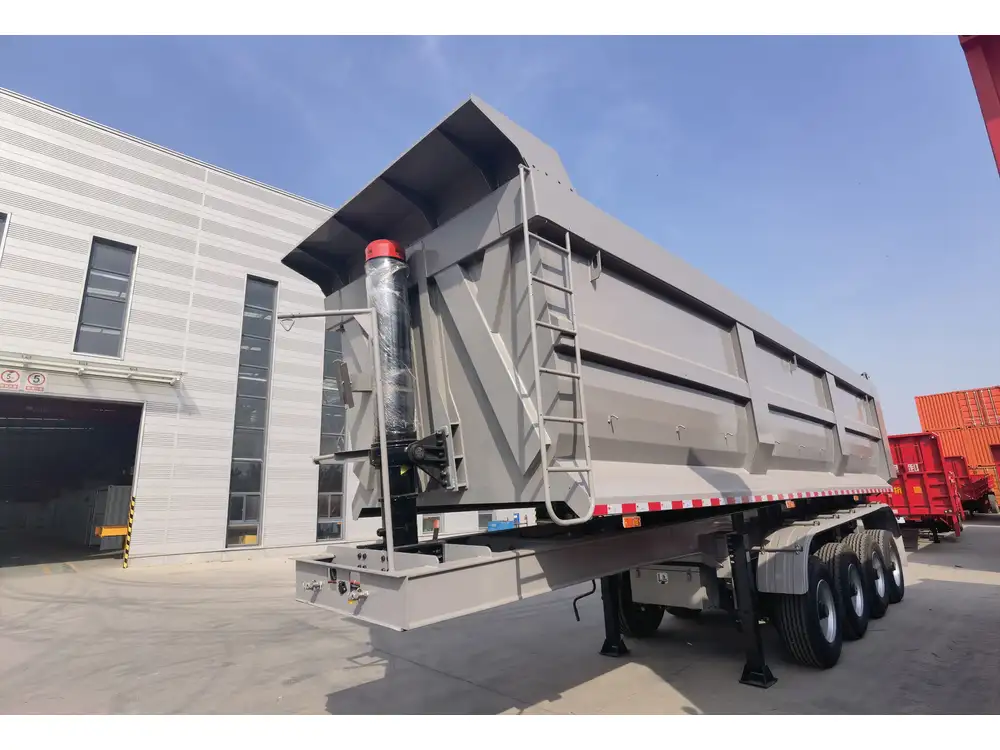
Increased Payload Capacity
Efficient fuel tank design can help maximize the payload capacity of a lorry. By optimizing the space and weight distribution within the trailer, more cargo can be transported without exceeding legal weight limits.
Environmental Impact
Optimized fuel usage translates to lower emissions, contributing to a greener and more sustainable operation. This not only aligns with global environmental standards but also enhances the company’s reputation as an eco-friendly business.
CarMax Vehicle: Leaders in Fuel Tank Optimization
At CarMax Vehicle, we are committed to delivering semi-trailers that are meticulously designed to optimize fuel tank capacity while maintaining durability and performance. Our expertise in this domain ensures that our clients benefit from vehicles that are both cost-effective and environmentally conscious.

Innovative Design Solutions
Our engineering team employs cutting-edge technologies and innovative design principles to create fuel tanks that maximize capacity without compromising on safety or functionality. By leveraging advanced materials and space-efficient layouts, we ensure that our trailers offer superior performance and longevity.
Customization for Diverse Needs
We understand that each client has unique requirements. Whether it’s a long-haul truck needing an extended range or a regional delivery vehicle prioritizing quick refueling, we provide customized solutions that align with specific operational goals.
Compliance and Safety
Safety is at the forefront of our design process. Our fuel tanks are built to comply with all relevant safety standards and regulations, ensuring that they are robust and reliable under various operating conditions. Rigorous testing and quality assurance measures guarantee that our trailers meet the highest safety benchmarks.

Comparative Analysis: CarMax Trailer vs. Competitors
To illustrate the superiority of CarMax Trailer’s fuel tank designs, let’s compare key aspects with industry competitors:
| Feature | CarMax Trailer | Competitor A | Competitor B |
|---|---|---|---|
| Fuel Tank Capacity | Optimized for maximum efficiency | Standard capacities limited by design | Variable capacities, often smaller |
| Material Quality | Advanced, lightweight composites | Traditional steel tanks | Mixed materials, less durable |
| Customization Options | Highly customizable to client needs | Limited customization | Moderate customization |
| Safety Standards | Exceeds industry safety regulations | Meets basic safety requirements | Inconsistent safety features |
| Cost Efficiency | Superior fuel economy and lower costs | Higher operational costs | Variable fuel efficiency |
This comparison highlights CarMax Trailer’s commitment to excellence, innovation, and client satisfaction, positioning us as the preferred choice for semi-trailers with optimal fuel tank capacities.
Key Considerations When Selecting Fuel Tank Capacity
Choosing the right fuel tank capacity involves a strategic assessment of various elements to ensure alignment with operational demands and financial goals. Here are critical considerations to guide the selection process:
Route Analysis
Understanding the typical routes that lorries will navigate is essential. Long-distance routes with limited refueling stations may necessitate larger fuel tanks, while urban routes with abundant refueling options might benefit from smaller, more agile tanks.

Load Requirements
The nature and volume of the cargo being transported influence fuel tank capacity. High payloads require efficient fuel usage, making it crucial to balance tank size with load capacity to avoid overloading and ensure regulatory compliance.
Fuel Consumption Patterns
Analyzing historical fuel consumption data helps in forecasting future needs. This analysis aids in selecting a fuel tank capacity that aligns with average consumption rates, preventing both underutilization and insufficient fuel reserves.
Economic Considerations
Evaluating the return on investment (ROI) is vital. Larger fuel tanks may involve higher initial costs but can lead to long-term savings through reduced fuel expenses and increased operational efficiency.
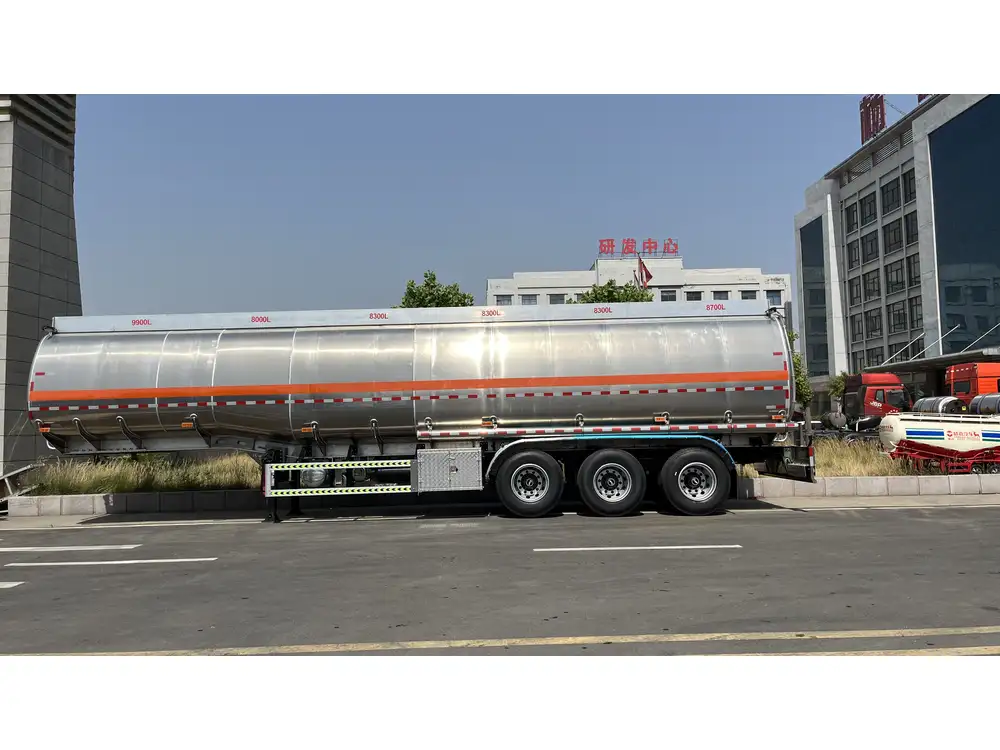
Technological Advancements in Fuel Tank Design
The integration of advanced technologies has revolutionized fuel tank design, enhancing capacity, safety, and efficiency. CarMax Vehicle leverages these advancements to deliver state-of-the-art semi-trailers that set new industry standards.
Lightweight Materials
The use of lightweight, high-strength materials reduces the overall weight of the fuel tank, allowing for greater fuel capacity without compromising the vehicle’s payload. Materials such as aluminum alloys and composite polymers are increasingly adopted for their durability and weight advantages.
Modular Designs
Modular fuel tank systems offer flexibility and ease of maintenance. These designs allow for quick replacements and upgrades, minimizing downtime and ensuring continuous operation.

Smart Fuel Management Systems
Incorporating smart fuel management systems enables real-time monitoring of fuel levels, consumption rates, and efficiency metrics. These systems provide valuable data that can be used to optimize fuel usage, predict maintenance needs, and enhance overall fleet management.
Aerodynamic Shaping
Advanced aerodynamic shaping of fuel tanks reduces wind resistance, contributing to improved fuel efficiency and lower emissions. This design approach not only benefits the environment but also enhances the vehicle’s performance and speed.
Sustainable Practices and Fuel Efficiency
Sustainability is a critical focus in modern logistics. Optimizing fuel tank capacity contributes to broader sustainability goals by enhancing fuel efficiency and reducing carbon footprints.
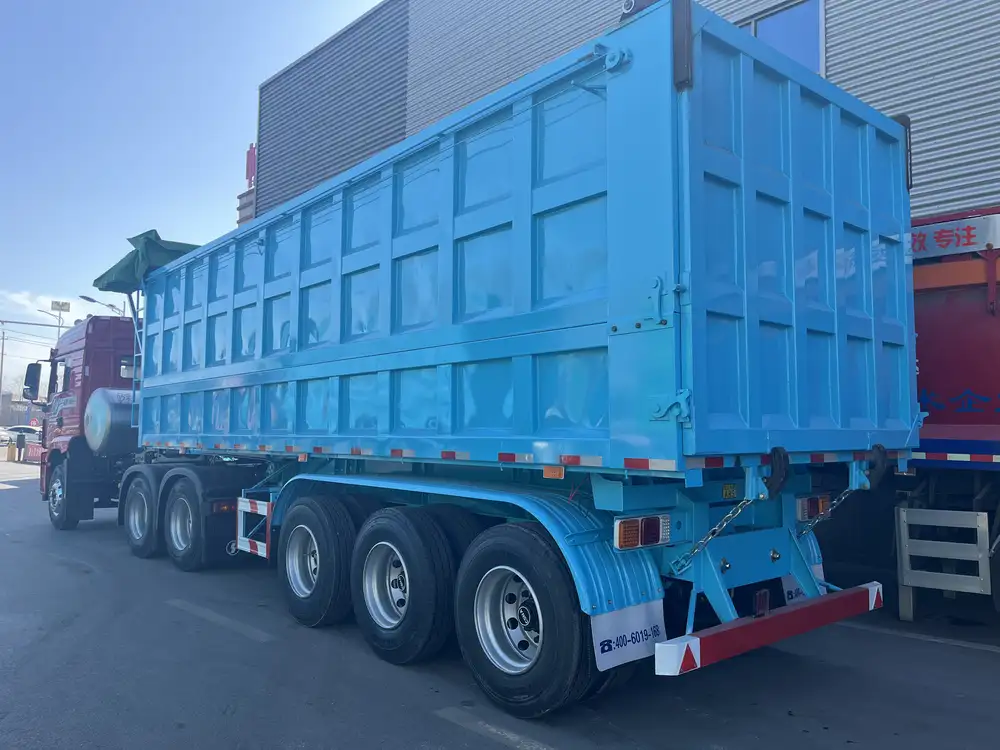
Eco-Friendly Materials
CarMax Trailer prioritizes the use of eco-friendly materials in fuel tank construction. These materials are not only recyclable but also have a lower environmental impact during manufacturing and disposal.
Optimized Fuel Usage
By maximizing fuel tank capacity and enhancing fuel management systems, we ensure that fuel is used efficiently, reducing waste and minimizing environmental impact.
Emission Reduction
Optimized fuel consumption directly correlates with lower greenhouse gas emissions. Our fuel-efficient designs help clients achieve compliance with stringent emission regulations and support global environmental initiatives.
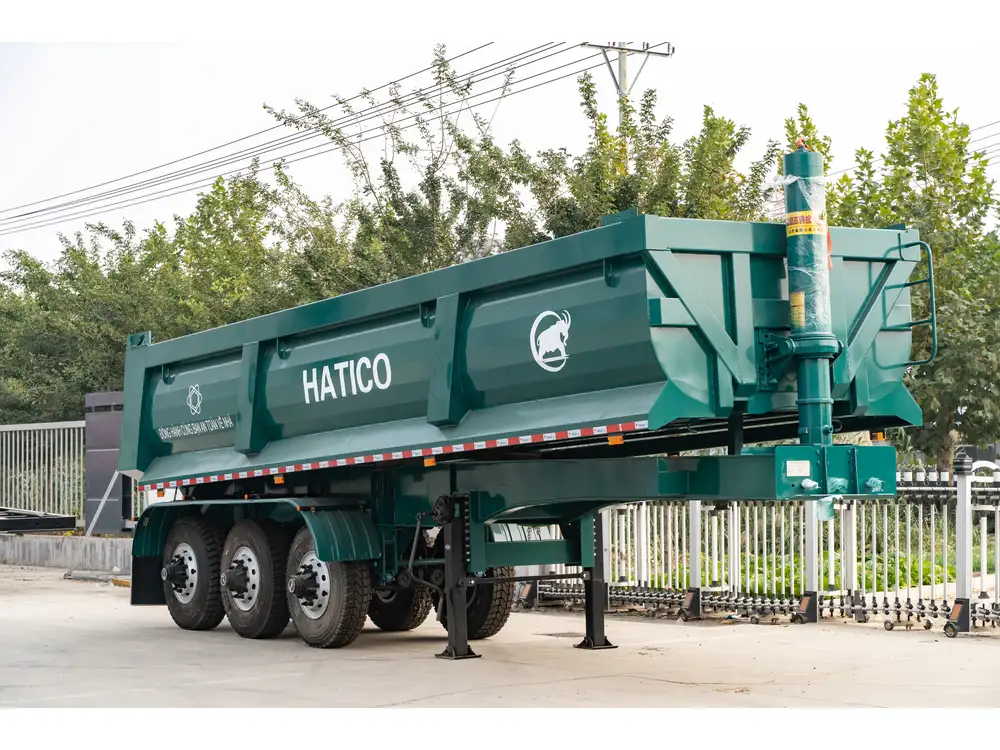
Maintenance and Durability of Fuel Tanks
Ensuring the longevity and reliability of fuel tanks is essential for maintaining uninterrupted operations. CarMax Vehicle designs fuel tanks with durability and ease of maintenance in mind.
Robust Construction
Our fuel tanks are constructed using high-grade materials that withstand harsh operating conditions, including extreme temperatures, vibrations, and impacts. This robust construction ensures longevity and reduces the need for frequent repairs or replacements.
Easy Access for Maintenance
Designs incorporate easy access points for inspections and maintenance, facilitating regular upkeep and minimizing downtime. This accessibility is crucial for early detection of potential issues and timely interventions.

Corrosion Resistance
Fuel tanks are treated with corrosion-resistant coatings and made from materials less prone to rust and degradation. This feature significantly extends the lifespan of the fuel tank, ensuring consistent performance over time.
Future Trends in Lorry Fuel Tank Capacity
The transport industry is continuously evolving, and so are the trends in fuel tank design and capacity optimization. Staying ahead of these trends is essential for maintaining competitive advantage.
Alternative Fuels
The shift towards alternative fuels, such as biofuels and hydrogen, is influencing fuel tank designs. Tanks are being adapted to accommodate different fuel types, ensuring versatility and future-proofing against industry changes.
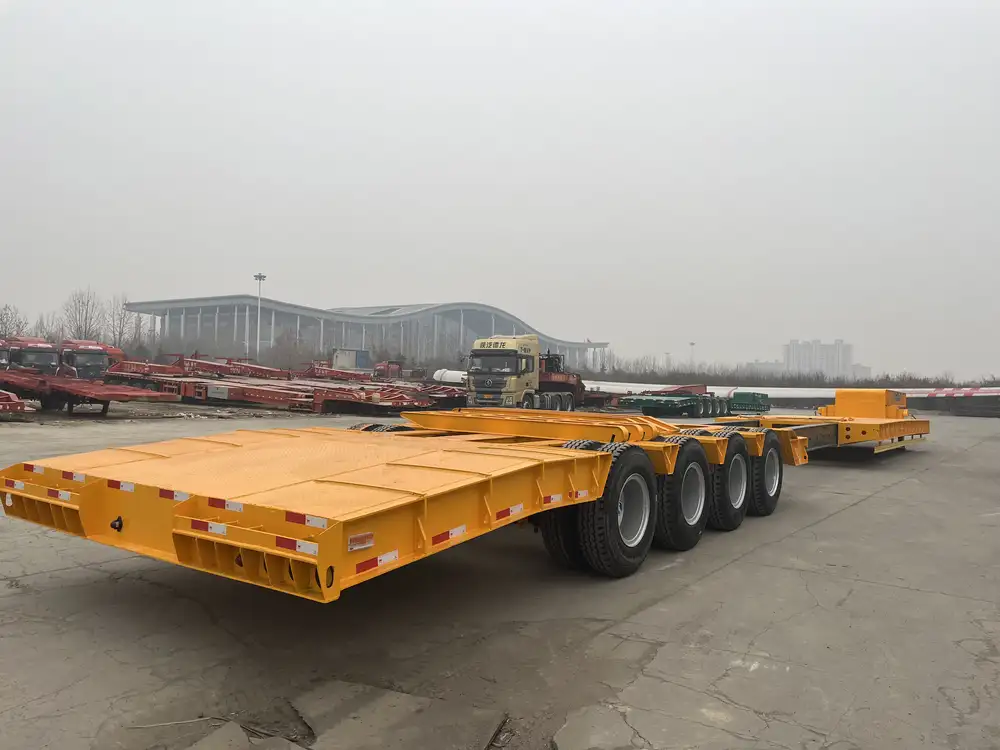
Electrification and Hybrid Systems
The rise of electric and hybrid lorries introduces new considerations for fuel tank capacity. While electric systems reduce reliance on traditional fuels, hybrid models still require optimized fuel tanks to balance electric and fuel power usage efficiently.
Autonomous Vehicles
Autonomous lorries necessitate advanced fuel management systems integrated with vehicle control systems. Optimizing fuel tank capacity in such vehicles involves seamless integration of fuel data with autonomous driving algorithms to enhance efficiency and performance.
Renewable Energy Integration
Integrating renewable energy sources, such as solar panels, with fuel tank systems can provide supplementary power for onboard systems, reducing overall fuel consumption and enhancing sustainability.

Choosing CarMax Trailer for Optimal Fuel Tank Solutions
Selecting the right partner for your transportation needs is crucial for achieving operational excellence. CarMax Trailer stands out as the premier choice for lorry fuel tank capacity optimization, offering unparalleled expertise and innovative solutions.
Comprehensive Consultation
We provide in-depth consultations to understand your specific needs and challenges. Our team works closely with clients to design fuel tank solutions that align with their operational goals and budgetary constraints.
Superior Quality Assurance
Quality is ingrained in every aspect of our manufacturing process. From material selection to final testing, we ensure that each fuel tank meets the highest standards of quality and performance.

After-Sales Support
Our commitment to clients extends beyond the sale. We offer comprehensive after-sales support, including maintenance services, technical assistance, and timely updates to ensure that your fleet remains in optimal condition.
Proven Track Record
With a history of successful projects and satisfied clients, CarMax Trailer has established itself as a trusted leader in the industry. Our reputation for delivering reliable and efficient fuel tank solutions speaks for itself.
Conclusion
Optimizing lorry fuel tank capacity is a strategic imperative for transportation and logistics companies aiming to enhance efficiency, reduce costs, and promote sustainability. CarMax Vehicle leads the way with innovative, customized, and reliable semi-trailer solutions that meet the diverse needs of our clients. By choosing CarMax Trailer, you invest in a partnership that prioritizes your operational success and aligns with the future of sustainable transportation.
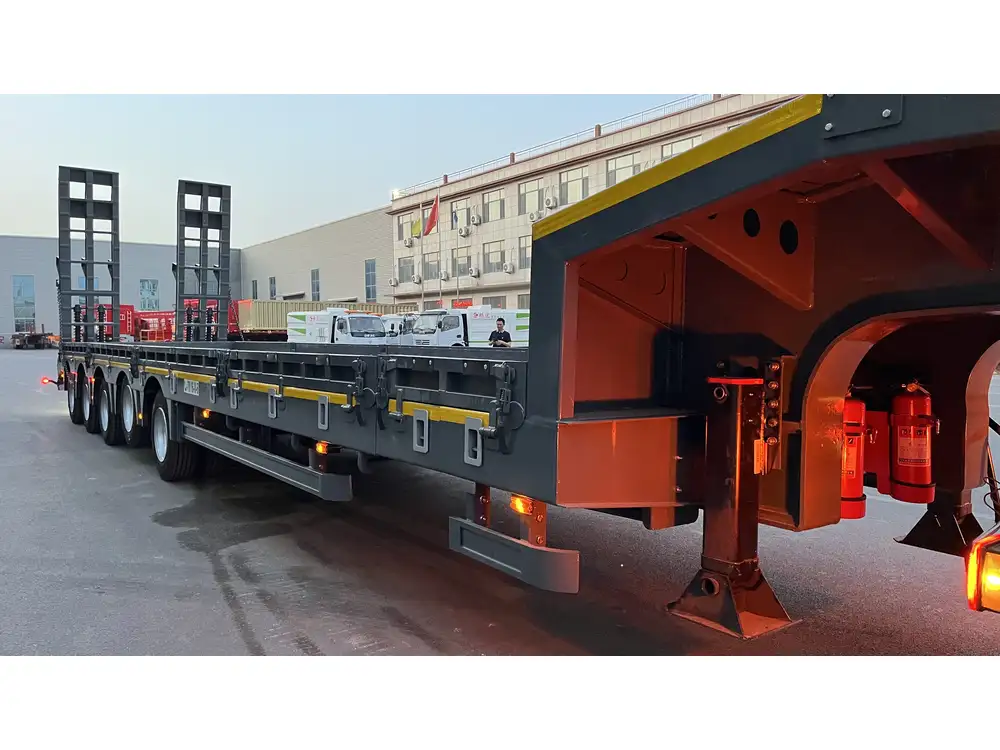
Frequently Asked Questions
1. What is the average fuel tank capacity for long-haul lorries?
Long-haul lorries typically have fuel tank capacities ranging from 600 to 1,200 liters, depending on the vehicle size, engine efficiency, and operational requirements. Customized solutions are available to meet specific distance and fuel consumption needs.
2. How does fuel tank capacity affect a lorry’s payload?
Fuel tank capacity impacts the overall weight distribution of a lorry. Optimizing tank size ensures that the maximum payload can be carried without exceeding legal weight limits, thereby enhancing both efficiency and compliance.
3. Can fuel tank capacity be adjusted after the lorry is manufactured?
Yes, fuel tank capacity can be modified post-manufacture through retrofitting options. However, it is more efficient and cost-effective to determine the optimal capacity during the design phase to ensure seamless integration and performance.
4. What materials are best for durable and lightweight fuel tanks?
Advanced materials such as aluminum alloys and composite polymers are ideal for creating durable yet lightweight fuel tanks. These materials offer high strength-to-weight ratios and excellent resistance to corrosion, ensuring longevity and efficiency.
5. How do smart fuel management systems enhance fuel tank efficiency?
Smart fuel management systems provide real-time monitoring of fuel levels, consumption rates, and efficiency metrics. This data enables better fuel planning, reduces waste, and ensures that fuel usage aligns with operational demands, ultimately enhancing overall efficiency.



